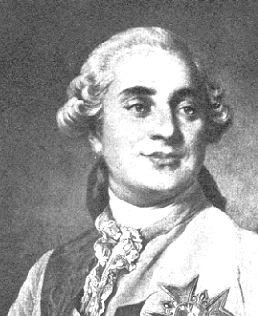Louis XVI
 |
 |
 |
Louis XVI (Versailles, 1754 Paris, 1793), king de France, wire of Louis de France, grandson and successor of Louis XV (1774-1792), husband (1770) of Marie-Antoinette of Austria. It went up on the throne whereas royal finances were in a difficult situation. Neither Turgot nor Necker (1777-1781) managed to restore the Treasury and to persuade the Parliament, recalled in 1774. The French participation in the war of American Independence (1774-1783) gave again prestige with monarchy but worsened the national debt, that Calonne, then Loménie de Brienne, then again Necker in vain tried to fill. The king then had to convene the States General (May 1789). By proclaiming national Assembly (June 17, 1789) then constituent Assembly, the deputies of the third state engaged a revolutionary process whose king does not seize the width. Refusing to guarantee the Constitution of 1791 which maintained it on the throne, revolted by the civil Constitution of the clergy, it the support from abroad sought and flees (June 20-21, 1791). Stopped to Varennes, discredited, it was brought back to Paris and the Jura fidelity to the Constitution, which recognized limited capacities to him (right of veto). Discounting the defeat of the revolutionists, it declared the war in Austria then (April 20, 1792) but ran up against popular mistrust. The insurrection of August 10, 1792 reversed the king, and Convention made its lawsuit (December 1792-January 1793): Louis XVI *was guillotiné on January 21, 1793. Its death caused a coalition of the sovereigns of Europe against revolutionary France.
